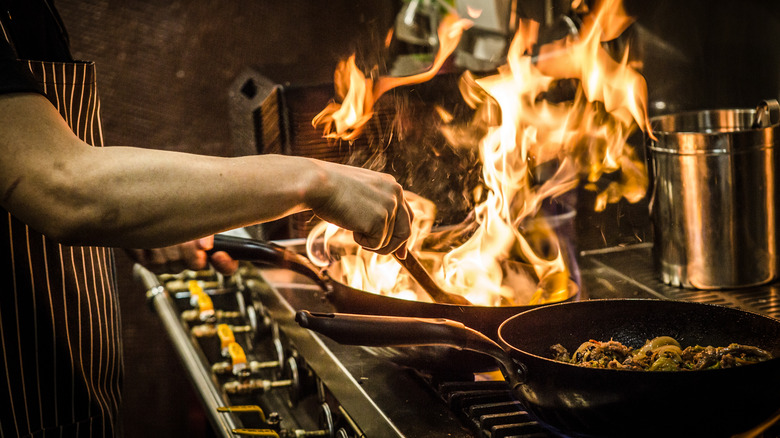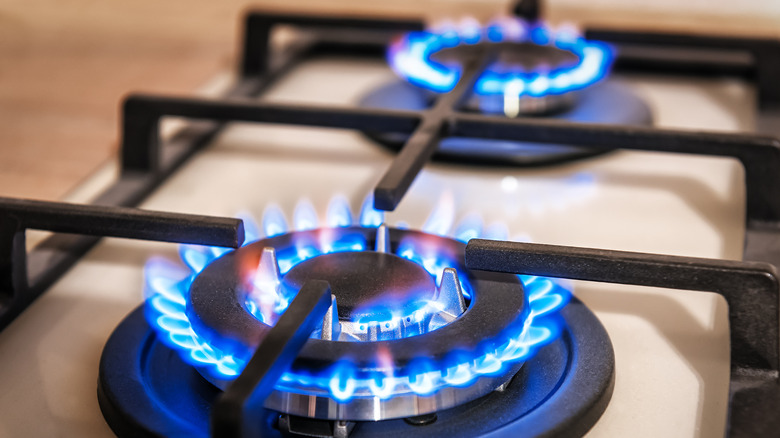California's First Gas Stove Ban Was Just Struck Down. Here's What It Means
Berkeley, California made news in 2019 when it passed an ordinance that prohibited the use of natural gas in new buildings. The logic behind the move was environmentally sound, as Berkeley wanted to reduce its greenhouse gas emissions, and natural gas was a major contributor, producing 27% of such emissions in the city.
Although the ordinance targeted future construction, not existing buildings or businesses, a lawsuit was soon filed against Berkeley by the California Restaurant Association, which claimed that a prohibition against gas stoves would have adverse impacts on the restaurant industry. Gas stoves are preferred by many chefs, based not only on how quickly they heat up — which reduces the time it takes to prepare dishes — but also the added precision they offer in terms of temperature control.
Although the lawsuit was filed in November 2019, the case has been winding its way through the appeals process, and a resolution has only recently been reached. On April 17, a trio of judges in the U.S. Court of Appeals for the Ninth Circuit struck down Berkeley's natural gas ban, the Associated Press (AP) has reported, citing federal precedence when it comes to establishing energy standards. The latest decision reversed a 2021 ruling made by a district judge.
Fallout from the court's decision to overturn the Berkeley gas ban
The circuit court's ruling was a win for the California Restaurant Association and Berkeley chefs that prefer gas stoves, but a definite setback for environmental advocates.
"As we face a climate and air quality crisis from coast to coast, it is vital that cities and states maintain all legal pathways to protect public health, cut climate emissions, and increase safety by addressing pollution from buildings," Earthjustice lawyer Matt Vespa told AP.
AP reported that the ruling would not be an issue for California communities prioritizing electricity usage over natural gas. It should be noted, however, that Berkeley wasn't the only city to pass a natural gas ban. In the wake of Berkeley's 2019 ordinance, natural gas bans were approved in major urban centers like New York City, San Francisco, and Seattle, as well as in smaller communities like Brookline, Massachusetts.
Are all of these bans now vulnerable to lawsuits similar to the one filed by the California Restaurant Association? Not necessarily, per Politico. Berkeley can appeal the decision, and even if such an appeal is denied, the case may not have broad implications for other towns and cities. Suggested Department of Energy regulations could also deal a blow to the natural gas proponents. According to preliminary estimates, only about 50% of gas stoves currently on the market would meet the new requirements if they were put in place.

